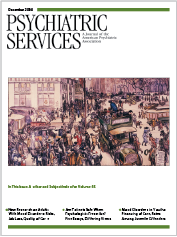The author of Waxwings, Jonathan Raban, was born in England but has lived in Seattle since 1990. His previous literary honors include the National Book Critics Circle Award and the Governor's Award of the State of Washington.
Waxwings boasts a host of flattering accolades, including this one from Michael Thompson-Noel of the Financial Times: "The appearance of a new book by Jonathan Raban is a bit like the arrival of an unheralded comet. The heavens gently part and suddenly, here in orbit, shimmering with novelty, is a distinguished newcomer from an unimagined world."
I feel like a bit of a naysayer, because this book did not make the heavens part for me. The first half of the book is filled with an overwhelming multitude of minute references to places in Seattle. At times it almost felt as if it were an unofficial guide to the city, but without the rambling consciousness of James Joyce's homage to Dublin, Ulysses.
The book contains two parallel and sometimes overlapping stories. The central story is that of a failed University of Washington English professor, Tom, who does a regular program on National Public Radio and appears jaded and cynical about his life and his career. He is in a loveless marriage to a rather assertive businesswoman, Beth, who eventually leaves him and moves into an inner-city condominium. They have a rather precocious son, Finn, who goes to a child psychiatrist for psychotherapy to deal with his attention-deficit hyperactivity disorder. Finn's language and demeanor are more suggestive of Asperger syndrome, but this possibility is never explored. The denouement of the primary story revolves around the rapid ostracization that Tom experiences when suspected of child assault and murder. I will not reveal the outcome of this investigation, so as not to spoil the story.
The more interesting parallel story concerns the "Americanization" of a Chinese stowaway, unoriginally called Chink. Chink survives a horrendous sea journey from China in a sealed container and escapes the Seattle police and immigration officials to join the anonymous world of illegal immigrants and homeless people in downtown Seattle. He metamorphoses into happy-go-lucky "Chick" and becomes a charismatic survivor who ends up managing a force of Mexican laborers. Chick meets Tom when he does some external renovations on Tom's house. He even stays in the basement of the house when Beth has gone, but their interwoven stories never find an end or resolution.
The poetic image of birds and the phenomenon of waxwings appear in the closing pages of the book, almost as an afterthought that ironically ended up begetting the book's title.

